Writing
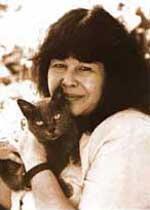
Marge Piercy
Novelist and poet Marge Piercy's life and life’s work reflect her deep engagement with political activism, feminism, and Judaism. In genres including fiction, poetry, liturgy, memoir, and essays, Piercy’s work brings together spirituality, creativity, memory, sensuality, and political engagement.
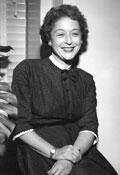
Harriet Fleischl Pilpel
Harriet Fleischl Pilpel was a prominent participant and strategist in women’s rights, birth control, and reproductive freedom litigation for over half a century.
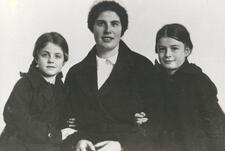
Clara Asscher Pinkhof
Clara Asscher Pinkhof dedicated her life and work to helping and advocating for Jewish children, initially as a teacher and later as an author. She is most known for her accounts of the experiences of Jewish children during the Nazi occupation.
Mimi Pinzón
Mimi Pinzón published a wide variety of acclaimed literary works in Yiddish, including her childhood novel Der hoyf on fenster, along with numerous Yiddish periodicals in Argentina and elsewhere. Pinzón is arguably the sole significant Yiddish writer who spent none of her school years in Eastern Europe.
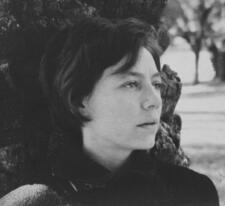
Alejandra Pizarnik
With a vast body of work that includes books of poetry, prose works, essays, and diaries, Alejandra Pizarnik (Argentina, 1936-1972) stands out as one of the most important and influential figures in twentieth-century Latin American poetry.
Maya Plisetskaya
Maya Plisetskaya was one of the legendary ballerinas of her generation. Her aunt and uncle, Sulamif and Asaf Messerer, helped to guide her into the ballet world, despite the persecution they faced during World War II. In 1943 she joined the Bolshoi and remained a principal dancer well into the 1960s.
Pauline Podbrey
Pauline Podbrey was a committed Communist and anti-Apartheid activist. A Lithuanian child migrant to South Africa, she moved away from her Jewish roots and endured exile as a result of her mixed-race marriage, only to become disillusioned with Communism.
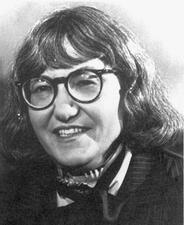
Poetry in the United States

Abigail Pogrebin
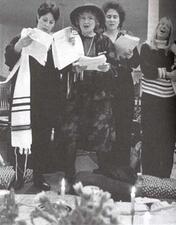
Letty Cottin Pogrebin
Letty Cottin Pogrebin--a writer, activist, editor, organizer, and advocate--gained national recognition first in the national women’s movement and later as a spokesperson for Jewish feminism and issues related to Israel-Palestine. In her work, Pogrebin writes intimately about her own life’s complexities, while echoing the experiences of millions of women.
Anna Sophia Polak
Anna Polak was an important figure in the Dutch women’s movement in the early twentieth-century, who served as director of the National Bureau of Women’s Labor in The Hague for 28 years. Her controversial views on the importance of involving women in the working world led to her international recognition; she was beloved and admired by many.
Poland: Early Modern (1500-1795)
Polish Jewish Women played a complex role in their society and culture during the early Modern Period. This role was usually gender segregated, but upon a closer look, was more gender flexible than one might think.
Poland: Interwar
A minority habitually ignored by scholars, Polish-Jewish women played important roles in the changing cultural and political framework of the interwar years.
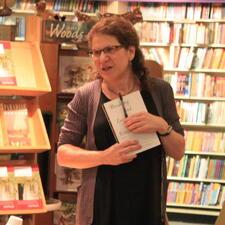
Eileen Pollack
Tamar De Sola Pool
Born into a family deeply involved in Jewish activism and scholarship, Tamar De Sola Pool spent over a decade as both a Hadassah chapter president and later Hadassah’s national president. She wrote two books in collaboration with her husband, volunteered at displaced persons camps in Cyprus, and helped resettle Jewish children in Palestine with Hadassah.
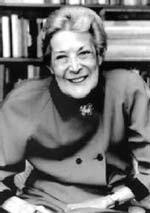
Sylvia Field Porter
The first woman on the financial desk of a big-city newspaper and the first woman to break into the world of writing about finance, Sylvia Field Porter was a pioneering economist, columnist, and best-selling author. For over half a century, she educated the American consumer about money matters, empowering women to achieve economic independence.
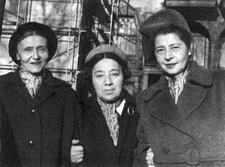
Rikudah Potash
Crowned “the Poetess of Jerusalem” by Sholem Asch, Rikudah Potash wrote in Yiddish about the landscape of her beloved city and its diverse ethnic communities. She brought to Yiddish readers the rarely seen Middle Eastern Jewish woman. Potash’s Jerusalem, both the heavenly and the earthly, was a capacious universe that she inhabited, body and soul, for thirty years.
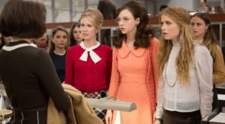
Lynn Povich
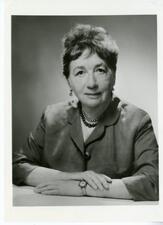
Hortense Powdermaker
Hortense Powdermaker explored the balance of involvement and detachment necessary for participant-observer fieldwork in cultural anthropology, stressing the ability to “step in and out of society.” Her secular Jewish identity was apparently a factor in learning this skill, exemplified in an academic career that included thirty years of college teaching and the writing of five major books based on widely diverse fieldwork studies.
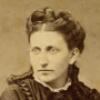
Mary Goldsmith Prag
One of California’s first Jewish educators, Mary Goldsmith Prag came to San Francisco as a young child during the Gold Rush. She became a religious and secular teacher, an administrator, a fighter for equal rights for women, and the mother of the first Jewish congresswoman, Florence Prag Kahn.
Printers
Jewish women have been involved in the production of Hebrew books from the earliest days of Hebrew printing. Until the nineteenth century, printing was a cottage industry, with an entire family joining in. Both Jewish and non-Jewish widows mainly took over the printing press after their husbands died, and women were involved in printing in both the Sephardi and the Ashkenazi worlds.
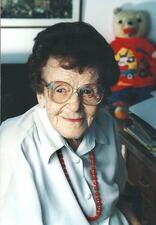
Prose Writing in the Yishuv: 1882-1948
Female Yishuv writers have often been ignored in discussions of Jewish literature from the period. As the sometimes-melancholy tone and escapist themes of their writing show, these women struggled to escape the margins in pre-state Palestine. Nonetheless, the works of these female writers offer important insights into the lives of Yishuv women and paved the way for contemporary women writers.
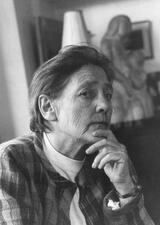
Psychology in the United States
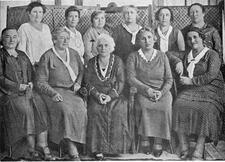
Nehamah Pukhachewsky
Nehamah Pukhachewsky’s writings advocated for Jewish women with a feminist confidence that resonates with readers to this day. Pukhachewsky immigrated from Lithuania to Palestine in 1889, actively participating in agriculture and women’s rights movements along with writing articles for Hebrew journals. She is remembered as one of the first modern Hebrew women prose writers.

Pulcellina of Blois
Pulcellina was a prominent and powerful Jewish moneylender in twelfth-century Blois. In 1171, she was burned at the stake with mother than 30 other Jews on the false accusation of murdering a Christian boy.


